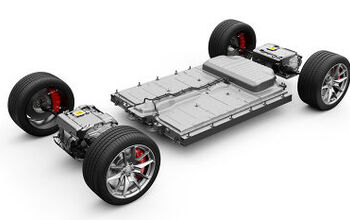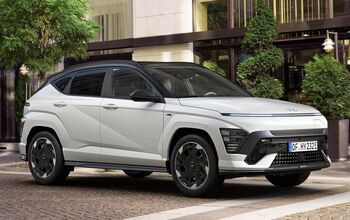Generation Why: How Citroen Is Disrupting The New Car Market By Selling Access, Not Ownership
The new Citroen C4 Cactus is delivering on its promise to offer a C-Segment car for a B-Segment prices, with base versions starting at just under 14,000 euros – by comparison, its sibling, the C4 hatchback (which is more like a Volkswagen Golf, as opposed to the quirky, pseudo-crossover Cactus) starts at 18,850 euros. But the low price of the Cactus isn’t even the big story here. Instead, Citroen appears to be aping the mobile phone industry with two new innovative pricing plans for the Cactus.
According to Automotive News Europe, Citroen will offer two payment plans that are similar to a mobile phone contract. The first is a flat-rate that costs 199 euros per month for 36 months, which includes the payment on a base C4 Cactus, maintenance, insurance and a 45,000 kilometer mileage allowance. Flat-rate plans will also be offered on higher-spec models, with higher monthly payments, and will function similar to a lease. At the end of the term, consumers can walk away from the car, buy it outright or enter into a new lease.
But the more innovative option is the “pay-per-use” scheme being rolled out in select markets like the UK, Spain and Italy. Pay-per-use customers will pay a lower monthly fee than the flat rate, as well as a fee based on mileage – customers could hypothetically pay nothing if the car for the use of the car if it is not driven at all during the monthly payment period, though the basic monthly payment would be billed.
According to Citroen, this plan is intended to capture buyers who favor access to a car rather than owning it outright. Citroen CEO Frederic Banzet explains it in the context of a car sharing service, stating
“There is a portion of the population that is not willing to buy a car, but willing to buy the use of a car…we are proposing a way to only pay for the use of the car, while still having it at your disposal whenever you want it,”
With Citroen’s plan, users can have their own dedicated form of transportation, while mitigating some of the costs of car ownership that make it unattractive for those who don’t drive often. While car sharing takes care of hassles like parking and fuel costs, the Citroen pay-per-use plan offers a way to have dedicated transportation with minimal financial hassles. By emphasizing access to a car rather than the prospect of being tied to the car via ownership, Citroen is tapping into the heart of a demographic that would like to drive a car and have one at their disposal, but is still understandably wary about the financial commitment that car ownership entails.
According to AN, factors like country-specific legislation, partnering with insurance firms and market demand will be roadblocks for a wider roll-out of pay-per-use contracts. While the first two factors are understandable roadblocks, the pay-per-use plan could become a very popular financing plan for a generation of consumers raised on mobile phones and apprehensive about the automobile.
More by Derek Kreindler
Latest Car Reviews
Read moreLatest Product Reviews
Read moreRecent Comments
- FreedMike Sounds like an excellent way to waste a ton of money.
- Theflyersfan 175K what...miles? Kilometers? Yards? Is this the one Land Rover in the universe that made it over 100,000 under its own power? I'd be too afraid to drive it daily. Just waiting for the first dash light - it always starts with just one - before the Christmas tree lights up, something sputters or stumbles, and then you're on the side of the road, miles from nowhere, with the toxic smell of frying electronics spewing from each vent. If you and your loved ones are into unplanned surprises and pain, go for it. If a beach vacation in Somalia mixed in with some overland trekking in Chechnya is your idea of best vacation ever, we have a vehicle for you. If you think your local Land Rover dealer has the best coffee in town, and you don't mind hours of HGTV on their waiting room TV, go for it. Just update your Facebook page regularly as the rest of us want to read the carnage.
- Ajla While this won't be a GX460, it probably isn't any worse a purchase than a Lincoln or Cadillac.
- 1sowa Its clearly the "Honda Anyone"
- Oberkanone Nope. Never. Run away. Unreliable money pit.

































Comments
Join the conversation
See potential. Car is all about convenience right? Private ownership can be iffy. Yeah the damage/theft etc is on them along with insurance & maintenance not you. Smart phone? How many people do I have to direct lost with their GPS - how productive is that? What's with that quilt on the Citroen door? How about dial a self driving Citroen? Fin - Citroen go home park yourself no charge?
This whole 'millennials don't want cars' is crap. I'm a millennial and the only ones in my circle that do not have cars live in DC, Manhattan/Brooklyn, or SF. And all of them would buy cars if they could afford a dedicated parking spot at or near their buildings. Even in DC, most of my millennial friends have cars. And my millenial siblings in seattle, la, and boston all have cars. and there's a massive country besides those cities that all require cars to live in pretty much. Mind you, we're all earning a decent wage....and that's what it really comes down to. Money.